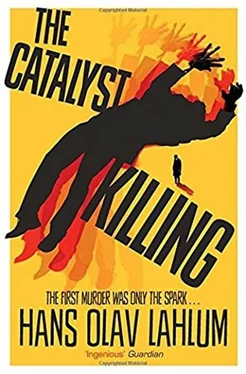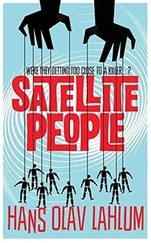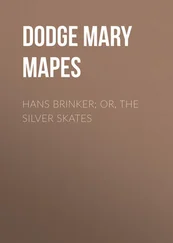I noted down the times and said that he would have to decide for himself whether he thought it was sensible to participate in the planned events or not. This triggered a sudden and unexpected change in the prime minister’s mood. Suddenly he looked anxious and almost upset. He said that the decision to cancel two such arrangements that he had promised to attend was very serious indeed, and that it should be discussed and looked at in more detail.
I had some problems in keeping a straight face, but told the prime minister that he would have to make a decision before the next day’s events. This seemed to heighten his anxiety even more. He said that might well be the case, but it was therefore all the more important to think things through and discuss the matter thoroughly before making a decision. I said, taking professional confidentiality into account, he could discuss it with his family and other members of the government, the party leadership and the prime minister’s office. Peder Borgen thanked me and promised to do that. He then asked if I would be available for further discussion if necessary.
I replied that I was honoured and would of course talk more about the case to him if he so wished, but that it might be difficult to reach me on my telephone due to the ongoing investigation. He said he understood and jotted down my telephone numbers right away. I was rather surprised then to receive a handwritten note with the prime minister’s own numbers on it, clearly marked ‘home’ and ‘work’.
I was even more astonished to hear him say that I could call whenever it suited, whether it was about the case or other issues that might interest me. In the end it was decided that I should try to call him around two the following day, and in the meantime make sure that he was informed immediately if there was any more news in relation to possible attacks and demonstrations. At the door, he shook my hand heartily again and thanked me for ‘a very interesting hour in good company’.
It was only then that it struck me that it was now two minutes to midday, and that I would be late for my next important appointment, even though Young’s Square lay relatively close by. I left the prime minister’s office with a favourable impression of the man himself, but also wondering if Norway’s leader was perhaps a little too dialogue-oriented and patient.
I arrived at the People’s Theatre building on Young’s Square at three minutes past twelve, and was immediately ushered into the office of the Labour Party leader, Trond Bratten. I almost ran in and apologized for being late, due to an overrun at the prime minister’s office.
The party leader himself was sitting at his desk behind great piles of paper, looking very relaxed about the whole thing. He remained seated and just nodded almost imperceptibly at the chair on the other side of the desk. I hesitated for a moment, then went over to the desk, held out my hand and introduced myself. His handshake was brief and limp, accompanied by a careful, almost shy smile.
‘Trond Bratten,’ he said in a quiet voice, as though it was something to be ashamed of.
The loud reaction came instead from the third person in the room whom I suddenly realized was there – his wife, Ragna Bratten. She leaped up from her chair by the wall, pumped my hand and commented that it was rather unfortunate that the country’s future prime minister had to wait.
Despite being in the middle of an increasingly hectic investigation, my fascination at meeting the leader of the Labour Party was even greater than my delight at meeting Peder Borgen. I had voted for Trond Bratten’s party at every election in the 1960s. I had always had a strong liking for him, both politically and personally. It was a joy to hear his arguments in speeches and debates. And what I knew about his life, from his childhood in relative poverty in Vestfold and the years as a prisoner of war in Germany to his position as chairman of the party and many years in office as minister of finance, engendered my deep respect. For as long as I could remember, Trond Bratten had been a member of the Labour Party leadership and one of Norway’s leading politicians. It felt like a great honour to meet such a living legend from Norway’s political life.
I mustered my courage and said this to him. The response was very positive. Trond Bratten himself smiled, slightly abashed, and his wife patted me enthusiastically on the shoulder.
My planned orientation was done in ten minutes here. The party chairman closely followed everything I said, and nodded pensively a couple of times. But he sat and listened without asking any questions or making any comments.
When I had finished my orientation, I looked at him questioningly, without getting a response. Trond Bratten sat without saying a word, almost without moving, even when I asked him if he had any public engagements in the coming days. Again, it was his wife who broke the silence.
‘My husband has only one public engagement over the next few days, but it is an extremely important one that must not be cancelled under any circumstances.’
Trond Bratten gave the tiniest of nods, but still said nothing.
I turned and looked askance at his wife, who then continued.
‘You may perhaps have read that my husband was seriously ill in the Easter holidays and then had to take several months off work. Well, the political situation has fortunately been rather quiet so far this year. It looks as though autumn and winter, however, might be more dramatic, as the Europe question is once again high on the agenda and the coalition government is falling apart at the seams. On top of this, my husband’s sick leave has led to malicious rumours that his health is now permanently impaired, so the deputy leader and other ambitious men have started to position themselves to take over. The former party leader and several older rivals who envy my husband’s unique abilities and position are also jostling in the wings. My husband is due to give his first major speech since his illness at Frogner Square tomorrow at five o’clock and it has been a long time in the planning. It is an attempt to appeal to new workers’ organizations in the west end, but will also be a large-scale mobilization of the labour movement. The unions in several workplaces have put on transport for employees to get there after work to hear my husband’s speech, which he has spent several hours preparing. No matter what reason was given, it would be a catastrophe if it did not go ahead as planned, which could have untold negative consequences for both the party and the nation.’
This tumbled out at speed and with passion. I looked at Trond Bratten, who at first simply nodded.
‘Norwegian democracy must never again allow itself to be intimidated into silence. And the leader of the Norwegian Labour Party is responsible for ensuring that democracy is not intimidated into silence!’ he said suddenly, with great conviction.
For a second, I recognized the Trond Bratten of his best and most pointed debates on the radio and television. His wife clapped with delight and I found myself almost doing the same. I stopped myself just in time, and instead asked if he had any other commitments in the next few days.
His wife answered swiftly, ‘No. He will have to rest well after tomorrow’s speech.’
Trond Bratten nodded and smiled at her. For a moment, he seemed to forget that I was present in the room.
I noted down the time and place of the next day’s engagement and said, as was the case, that we so far had no indication of any targeted action against Trond Bratten or anyone else from the Labour Party. I promised to let them know if we got any new information. And I was bold enough to advise Mrs Bratten that until the situation was fully established, she should be especially mindful of her husband.
Читать дальше












